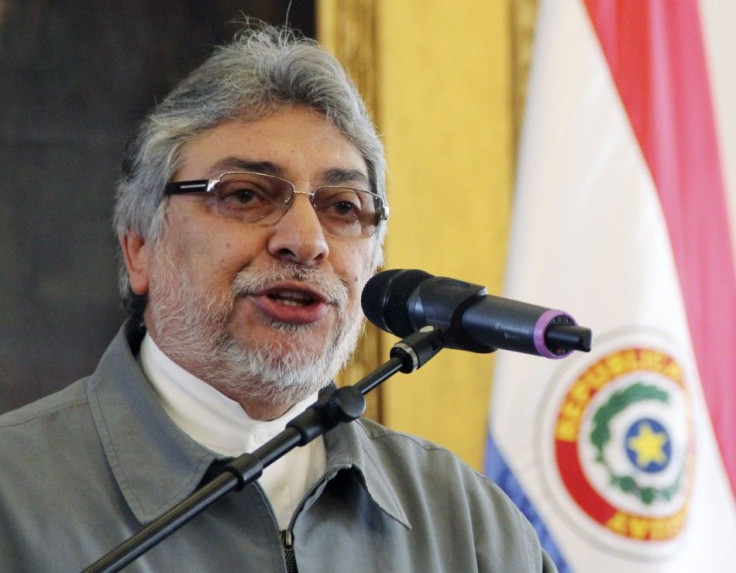Latin America's Old Land Disputes Resurface In Impeachment Of Paraguay's President

Paraguayan President Fernando Lugo has come under fire from lawmakers over his handling of the attempted eviction of landless farmers in Canindeyu province last week that resulted in a bloody clash leaving seven police officers and at least nine farmers dead.
Impeachment proceedings began Friday, less than 24 hours after both chambers of Congress voted to approve them. Lugo refused to attend the trial, describing it as an express coup d'etat that was carried out in the wee hours of the night.
The president has been given fewer guarantees and fewer rights to defend himself than someone with a traffic fine, said Adolfo Ferreiro, a lawyer on Lugo's defense team, Reuters reported. They seem to think anything can be justified in the name of politics.
Lugo's political opponents, who dominate the Paraguayan legislature, are seeking his ouster over the eviction incident, in which 300 police officers fired upon 150 farmers after the farmers had ambushed their forces on a 4,900-acre estate, refusing to be evicted from the property.
Whether or not the motivations for Lugo's impeachment are purely political, the trial highlights the real grievances of Paraguay's landless farmers in a country where nearly 80 percent of the land is controlled by only 1 percent of the population.
The farmers claimed the estate, owned by a wealthy political opponent of Lugo, had been taken from them during the 35-year military rule of Gen. Alfredo Stroessner from 1954 to 1989.
Under Stroessner, thousands of acres of land had been seized from poor farmers and redistributed to members of the military and social elite.
Stroessner was eventually ousted by a military coup, although his right-wing political faction, the Colorado Party, remained entrenched and held the presidency until 2003. During this period of democratic reform, the issue of land expropriations went unaddressed.
Lugo, an independent left-wing member of the center-left Patriotic Alliance for Change, or PAC, coalition, was voted into office in 2008 on a platform of land reform that would benefit Paraguay's disenfranchised farmers, who represent 40 percent of the population.
While Lugo has addressed many concerns of Paraguay's poor and working class through improved social services such as public housing, medical care, and cash subsidies for the most impoverished, he has made little headway on land reform, largely due to resistance among the moderates in the PAC coalition.
Lugo has been a politically weak president from the outset of his term. He has been struggling to hold together his shaky coalition, said Michael Shifter, president of the Inter-American Dialogue think tank in Washington, the Associated Press reported.
Nevertheless, Lugo retains strong support among Paraguay's poor and working class, and his impeachment trial has been met with mass public protests led by his supporters.
The Paraguayan Senate is expected to hold a vote on whether to remove Lugo from office Friday. If he is removed, he will be replaced by Vice President Federico Franco.
If presidents were ousted because of the reasons cited in this case, there would be few Latin American presidents left in office, Shifter was quoted as saying by AP. The opposition simply didn't agree with Lugo's policies and didn't approve of the way he governed. As a result, the opposition manipulated the system, adhering to the letter of the law but departing from the principle of democracy.
© Copyright IBTimes 2025. All rights reserved.





















